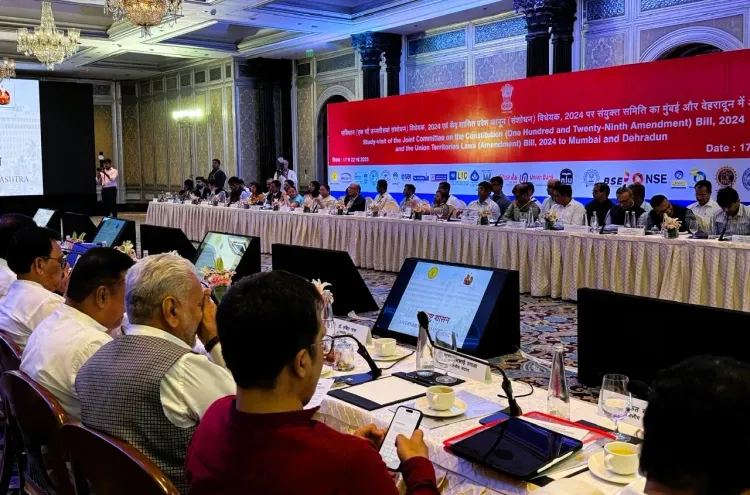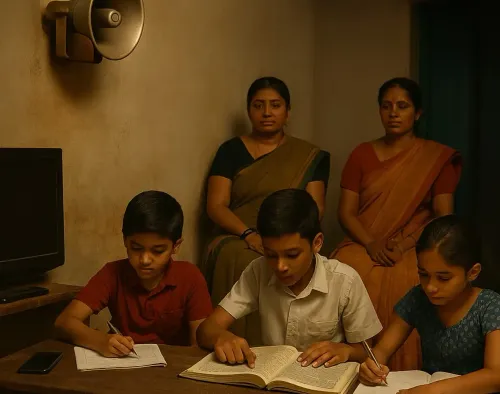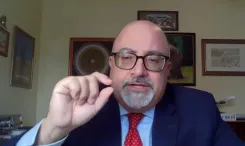What Are the Outcomes of JPC Consultations on Simultaneous Elections in Maharashtra?

Synopsis
Key Takeaways
- Joint Parliamentary Committee engages stakeholders in Maharashtra.
- Focus on administrative and economic impacts of simultaneous elections.
- Collaboration with major financial institutions for comprehensive studies.
- In-depth discussions with political party leaders.
- Implications on monetary policy explored with RBI.
Mumbai, May 17 (NationPress) - The Joint Parliamentary Committee (JPC) on the Constitution (One Hundred and Twenty-Ninth Amendment) Bill, 2024, along with the Union Territories Laws (Amendment) Bill, 2024, has engaged in comprehensive consultations with influential stakeholders in Maharashtra regarding the practicality and consequences of simultaneous elections.
The Committee held thorough discussions with representatives from the Maharashtra government, senior bureaucrats, and members of both national and regional political parties.
The focus of these discussions was primarily on the potential administrative and economic ramifications of conducting simultaneous elections.
State officials confirmed to the Committee that an extensive study will be conducted to evaluate the broader implications, especially in areas such as education, as stated in the government release.
During their visit, the Committee also met with political party representatives in Maharashtra, including Prithviraj Chavan, former Chief Minister. Party officials expressed their perspectives on the constitutional, logistical, and other challenges tied to simultaneous elections.
In another session, the Committee spoke with officials from the Reserve Bank of India (RBI) to explore the implications of unsynchronized elections on monetary policy.
RBI representatives conveyed that a thorough study would be initiated to assess the effects of simultaneous elections on policy development and the economic uncertainty created by frequent electoral cycles.
The Committee also consulted with major financial institutions such as State Bank of India, Central Bank of India, Bank of India, Union Bank of India, Life Insurance Corporation (LIC), General Insurance Corporation (GIC), and NABARD.
Discussions revolved around the potential impact of simultaneous elections on the nation’s banking sector and credit culture. These institutions assured the Committee that, under the guidance of the Indian Banks' Association, a comprehensive study would be launched and its findings submitted to the Committee.
The JPC aims to incorporate these insights into its report, providing direction on the intricate matters of electoral reforms and the feasibility of simultaneous elections in India.










